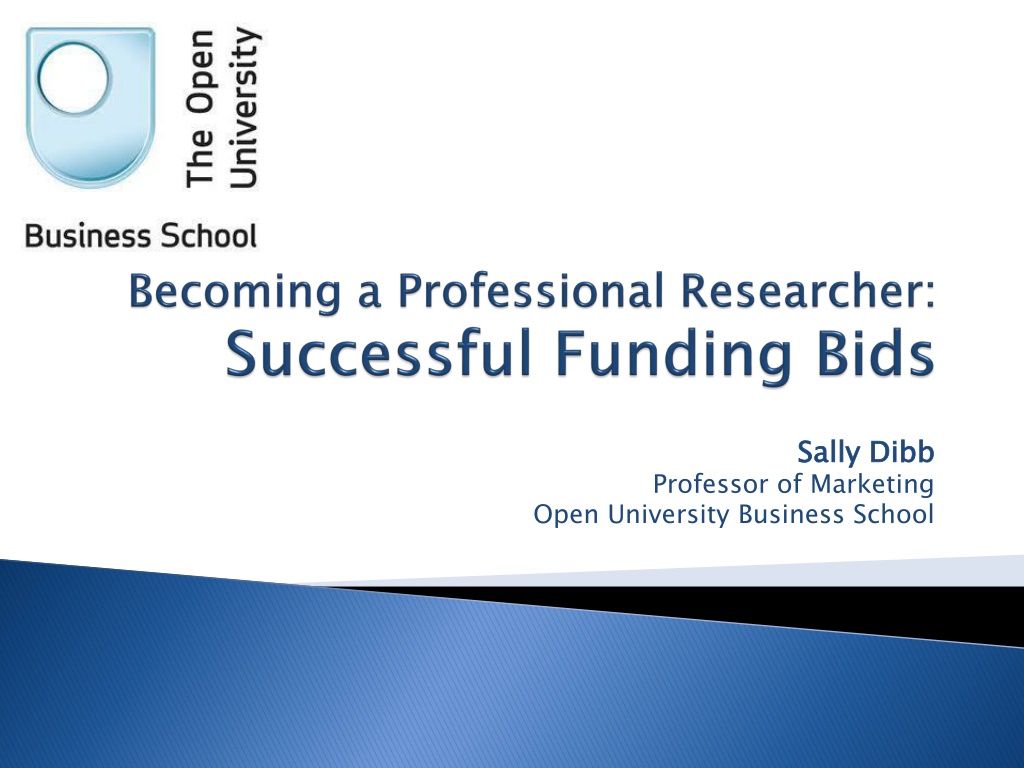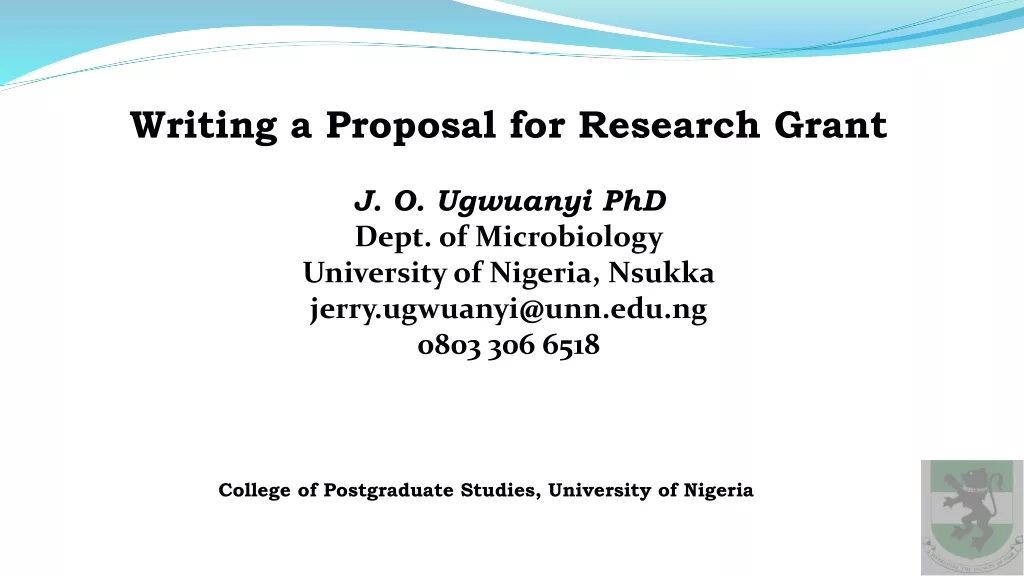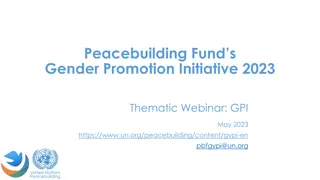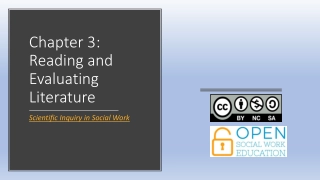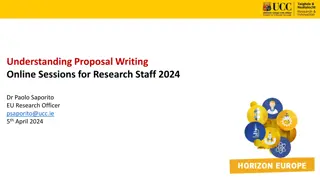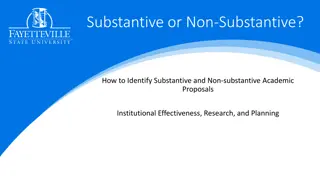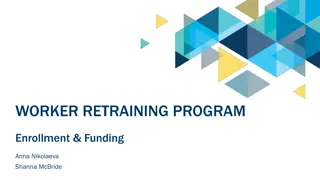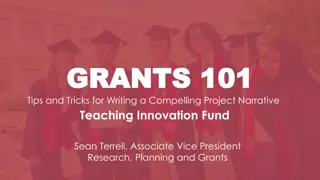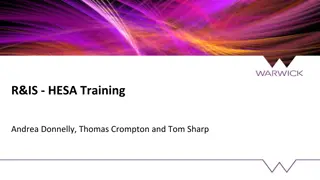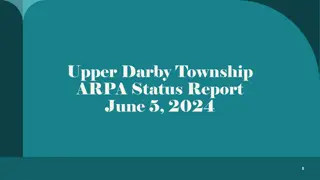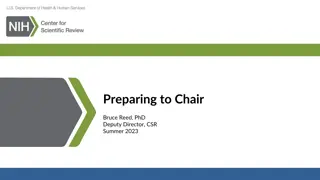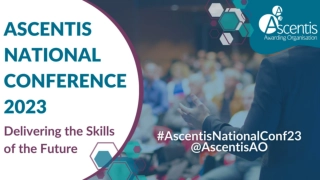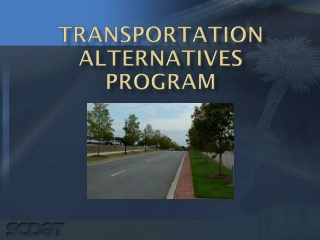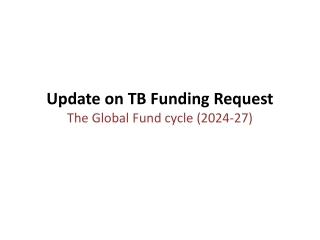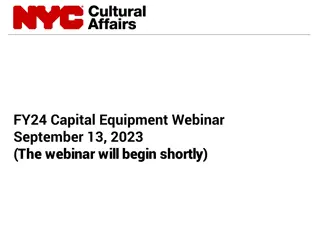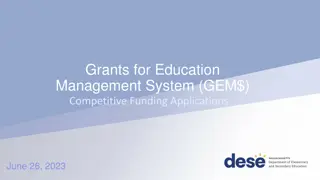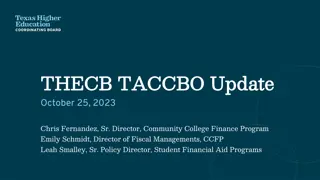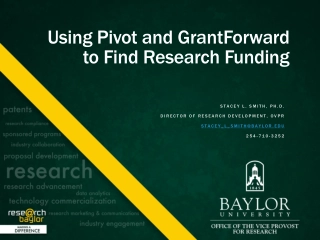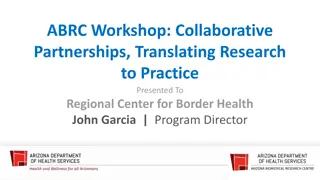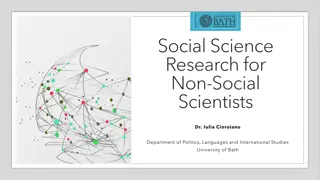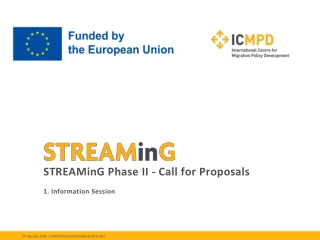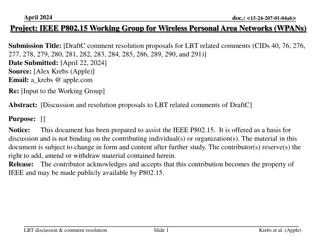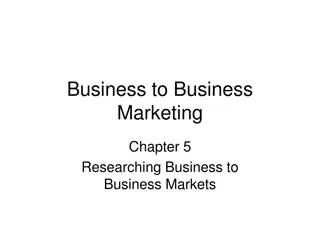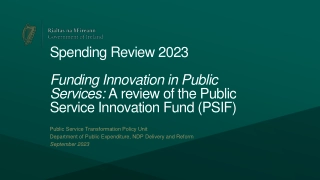Strategies for Successful Research Funding Proposals
Research active academics play a crucial role in attracting external research funding, benefiting both the university and individuals. This involves building a strong team, networking, and collaboration to enhance publications and impact. Knowing funders' aims, standing out among proposals, and convincing reviewers are key to securing funding. The process includes addressing the significance of the problem, demonstrating competencies, and enticing funders with a compelling proposal, even in challenging circumstances. Effective communication is essential to persuade reviewers of the proposal's excellence.
Download Presentation
Please find below an Image/Link to download the presentation.
The content on the website is provided AS IS for your information and personal use only. It may not be sold, licensed, or shared on other websites without obtaining consent from the author. Download presentation by click this link. If you encounter any issues during the download, it is possible that the publisher has removed the file from their server.
Presentation Transcript
Sally Dibb Sally Dibb Professor of Marketing Open University Business School
Research active academics are expected to attract external research funding Good for the University, brings money and profile, contributes to REF, accreditations. Good for you, CV building, encourages team work, networking and collaboration Provides great opportunities for publication, dissemination and impact
Practitioners Practitioners Your discipline Your discipline Networks & colleagues Networks & colleagues Funders Funders Policy makers Policy makers
SIGNIFICANCE: SUCCESS: problem GOOD VALUE: appropriate and sufficient COMPETENCE: deliver SIGNIFICANCE: Of the research problem SUCCESS: Proposed project can solve the GOOD VALUE: Requested resources are COMPETENCE: PI & research team can
Enticing the funder Enticing the funder 1. Uh oh we have a problem . 2. But don t worry, we know how to solve it! 3. And it will be worth it 4. And we are the team to do it!
Funders have guiding aims, which may change over time Resources are limited so they only fund the best Investing in a project carries risk. Funders must justify their choices & be transparent KNOW CHOOSE Your project must STAND OUT CONVINCE are aware of the risks & can handle them KNOW what they are and CHOOSE funder accordingly STAND OUT from others CONVINCE them that you
Your reviewer is reading through the proposals, but shes left at the last moment. It s 6 a.m. on the day she s flying to Washington. She s sitting at the bus stop, it s raining, she has the flu, and she s got your proposal in front of her. Your writing should be able to persuade her that this is a great proposal, even under those conditions. Brett Tyler, Virginia Bioinformatics Institute.
What the committee does: May include specialists and non-specialists, supported by reviewers One or two-stage bidding process Sharing of bids among committee members, e.g. 2 members per proposal suggest initial score Committee discusses and reviews scores, then ranks proposals accordingly
SIGNIFICANCE Show fit with the funder s aims Make it stand out from the crowd and be memorable Show why it matters to non-specialists, Likelihood of SUCCESS Provide a detailed description of your approach Offer evidence that this approach will work GOOD VALUE Match the requested resources to the project description Show how these resources will fulfil the objectives. This is NOT the same as being cheap COMPETENCE of the team Include evidence to convince the funder that your team and the institution behind it can deliver SIGNIFICANCE Likelihood of SUCCESS GOOD VALUE COMPETENCE of the team
Follow the guidelines Keep it simple and speed readable Suitable for non-specialists Simple writing, short sentences, no abbreviations Use and repeat memorable phrases Use a top-down writing style Academics often do the opposite Don t blind them with science !
Use a clear and logical structure Consistent headings Lots of signposting and section links (e.g. this section explains that and the next section will... Write the Description of Research first, then the Background, Introduction and finally, the Summary Use key sentences in the Summary from the Case for Support. Repeat key phrases several times Draft, redraft, and redraft
Introduction: project aims & research question Background i. ii. you need to know to answer the main question iii. iv. Describe your research I. will know you have succeeded II. sub-questions III. Your project outputs Adapted from: www.researchfundingtoolkit.org 1. 2. Why the question is important (provide evidence) Break the question down into 3-5 sub-questions, things Why you are competent Why your approach will succeed 3. Explain what you will do, how you will do it, and how you Explain activity components that each answer one of the Give an account of necessary resources 4.
Do what it takes to talk your way into more experienced bid teams Become friends with funders. Seek advice by attending their events and through direct contact Ask for input from bidding experts and choose critical Get your Mum/Dad/neighbour to read it . Bite off what you can chew, e.g. seed-corn calls or those aimed at early career researchers, then build from there critical reviewers to read your bids
You need to be good and Most bids fail and rejection hurts Even bidding stars get regular rejections (and feel sore/cross/angry/despairing about it) Waste not, want not Recycle, recycle, recycle . Be creative. Different funders, responsive vs non- responsive modes, talks, journal articles and lucky to succeed
Aldridge, J. & Derrington, A. (2012) The Research Funding Toolkit, Sage Publications. Different funders own websites www.researchfundingtoolkit.org JISC, details on bid writing found at: http://www.jiscrsc.ac.uk/media/106046/good_bid_w riting.pdf Day Peters, A. (2003) Winning Research Funding Gower.
OU - Funding for Your Research http://intranet6.open.ac.uk/research-scholarship- quality/main/funding-research VRE Professional Skills for Research Leaders on- line short course: Module 3 - Funding Your Research http://www.open.ac.uk/students/research/content/professional- skills-research-leaders Vitae website - Applying for Research Funding https://www.vitae.ac.uk/doing-research/leadership-development- for-principal-investigators-pis/leading-a-research-project/applying- for-research-funding/applying-for-research-funding
